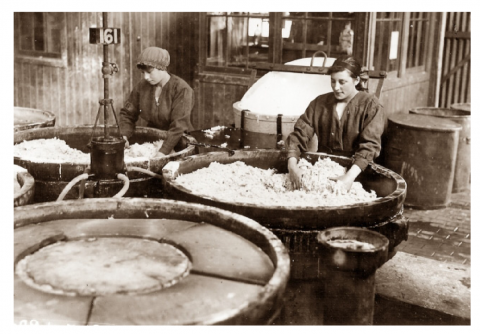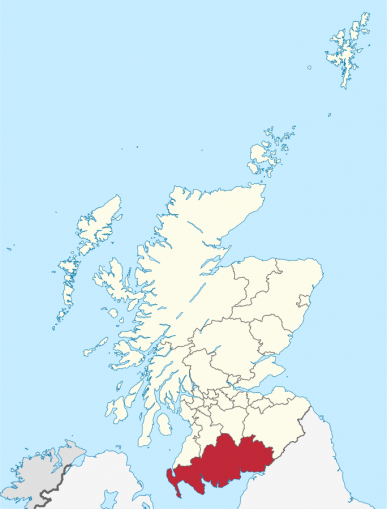Devil’s Porridge a remarkable museum with a sinister name coined by Arthur Conan Doyle

The unusually named Devil's Porridge Museum in southern Scotland explores the history of World War One, World War Two and the Cold War. It commemorates HM Factory Gretna, the largest munitions factory in the world during the First World War and explores the wider history of the Solway Coast during the Second World War and beyond. The Scottish part of the coast of the Solway Firth (Scottish Gaelic: Tràchd Romhra) stretches along the south of Dumfries and Galloway (Scottish Gaelic: Dùn Phrìs is Gall-Ghaidhealaibh) as far as the Mull of Galloway (Scottish Gaelic: Maol nan Gall) the southernmost point of Scotland. The firth comprises part of the Irish Sea (Scottish Gaelic: Muir Èireann).
The name "Devil's Porridge" has an awful and appropriate origin. It is taken from the writings of Scottish author Arthur Conan Doyle (22 May 1859 – 7 July 1930) famous for his Sherlock Holmes stories. He visited the factory as a war correspondent in 1916 and later wrote "The nitroglycerin on the one side and the gun-cotton on the other are kneaded into a sort of a devil's porridge; which is the next stage of manufacture...those smiling khaki-clad girls who are swirling the stuff round in their hands would be blown to atoms in an instant if certain small changes occurred". This was dangerous work and accidental explosions happened. Working with the lethal materials also resulted in long term health problems for the largely female workforce. They would often lose their teeth, permanently, due to the acid in the air destroying their gums. Working with TNT could also result in their skin turning a shade of yellow, earning them the nickname ‘the Canary Girls’.
The Devil's Porridge Museum tells the story of these women and is highly rated. For the fourth consecutive year the attraction has been awarded a five-star rating from VisitScotland. VisitScotland is Scotland's national tourism organisation. Despite ongoing closure due to the coronavirus pandemic, the museum is continuing to explore local history and the area’s past, having just launched a series of free online talks. Each talk is on a different topic. Recently featuring the story of Dorothée Pullinger, a pioneering female engineer, she built the Tongland Factory near Kirkcudbright in the 1920s and it was here that the Galloway Car was built, a car ‘made by ladies for ladies’. Other talks are scheduled for February 15th on Love in Wartime and one on March 22nd on female engineers in Dumfries and Galloway. More information on these free talks can be obtained from the Devil's Porridge Museum website.
Image above: Cordite Mixing courtesy of Devil's Porridge Museum website.
Image below: Location map Dumfries and Galloway, Scotland.






